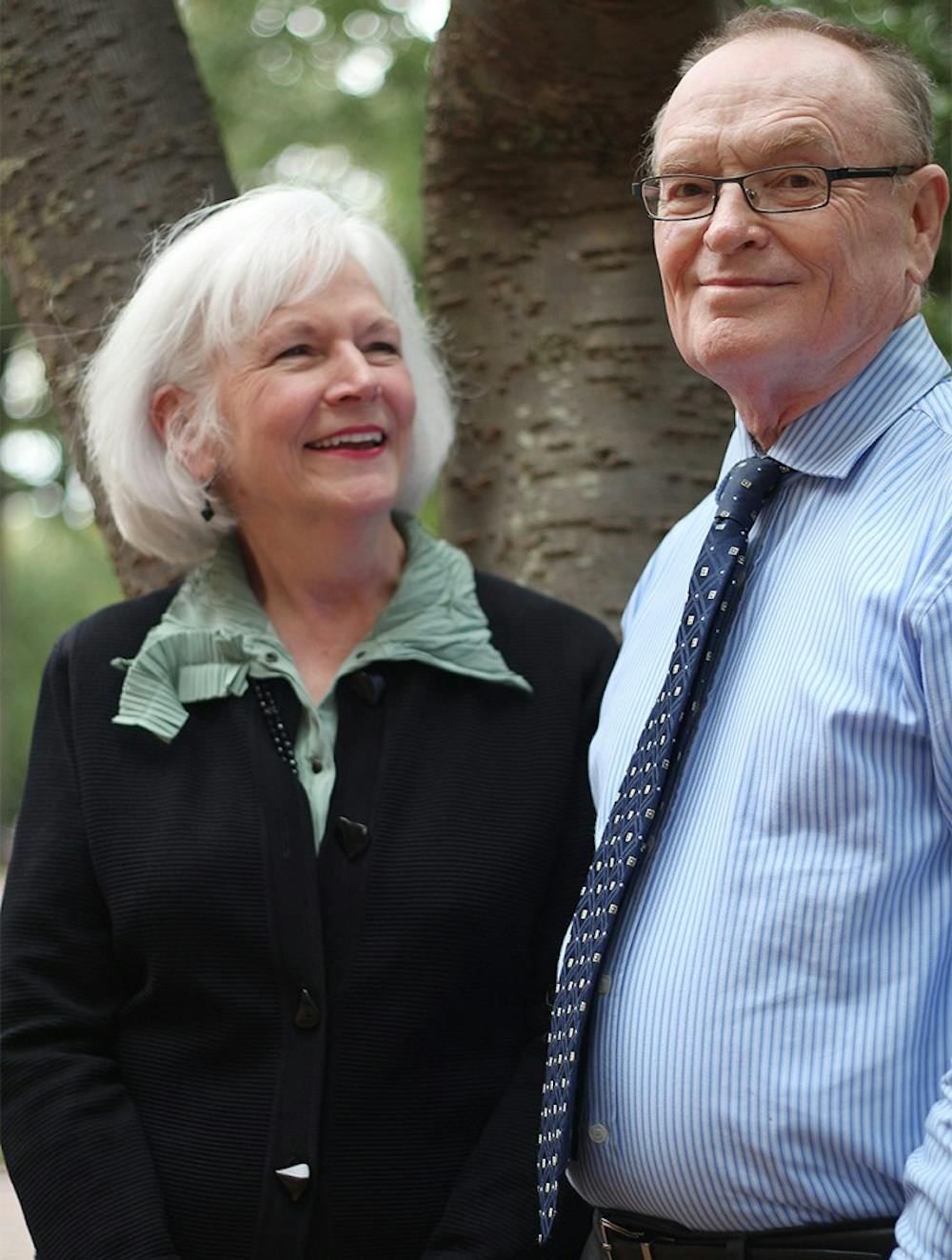WSU currently has about 18,000 undergraduates enrolled, and Barnhart plans to serve roughly 88 students with its program.
She said she plans to incorporate Carolina Covenant’s financial aid aspect, as well as the mentoring, academic advising, outreach and community services offered through the program.
“(Carolina Covenant) set the gold standard for all of us to aspire to be,” she said.
Setting the standard
Since its proposal in 2003 and subsequent enactment during the 2004-05 academic year, the program has grown significantly. After a successful second year, the program increased the eligibility threshold to 200 percent or less of the poverty level.
Senior Brandi King first heard about the program from her high school guidance counselor, who said that she was a likely candidate for the program based on her grades and family income.
“My mom was willing to do it, to help me pay for it, but receiving the scholarship made it easier to commit to coming here and put less of a strain on my family,” she said.
Hannah Walker, a Covenant Scholar who graduated in December 2012, said graduating without the burden of student loans made her life after school much less stressful.
“I’m one of the only people I know who got out of school and didn’t immediately freak out about student loans,” said Walker, who now works as the marketing coordinator for Sugarland, a popular bakery on Franklin Street.
“I was able to buy a car and an apartment without having to set aside money each month to pay off student loans.”
This year saw the largest Covenant Scholars class enrolled, with a total of 669 students enrolled in the program this year alone.
Covenant Scholars make up 13.4 percent of the entering freshman class at UNC.
To get the day's news and headlines in your inbox each morning, sign up for our email newsletters.
Strong academics
In addition to the physical growth the program has seen over the years, there has been substantial academic growth among Covenant Scholars.
“National studies indicate that students from low-income families do not persist or graduate at the same rates as their more affluent peers,” Ort said.
“The same used to be true at Carolina, but we are making great gains.”
Since the program’s conception, the four-year graduation rate of Carolina Covenant students has increased by 17.5 percentage points, to 74.2 percent today — close to that of all students, which is 80.2 percent.
Ort attributes this to the removal of financial barriers, the access to supplemental academic and personal support systems and the University’s welcoming and embracing students of all academic backgrounds.
“After all, that’s what it means to be public, right?” she said.
Another increase that the program has seen is the four-year graduation rate of African-American males in the program.
Since the creation of the Carolina Covenant program, the rate has nearly doubled, increasing from 33.3 percent to 65.9 percent.
“That’s a headline you won’t see anywhere else,” Ort said.
Challenges ahead
The program does face challenges when it comes to funding.
The program receives grants from both state and federal funds, and scholars receive work-study jobs. This combination of grants, scholarships and work-study programs allows scholars to graduate debt-free.
James Moeser, who was UNC’s chancellor when the program was launched, said his greatest fear is that funds for the program are insecure.
He said hopes to raise enough funds to endow the program during the next fundraising campaign.
Faced with similar funding challenges, U.Va. recently announced a change for its financial aid program, AccessUVa.
Starting in the 2014-15 academic year, U.Va.’s program will introduce need-based loans as a part of financial aid packages to students from low-income backgrounds. Students already in the program will not be affected by these changes.
“AccessUVa was established essentially on a blank check. And over time, the costs associated with the program have grown at an unsustainable rate,” said McGregor McCance, senior director of media relations at U.Va., in an email.
McCance said institutional costs have increased from about $11 million in the first year to more than $40 million in the last academic year.
In response to the introduction of need-based loans, U.Va. alumna Mary Nguyen Barry created the “I AM NOT A LOAN” petition and said the introduction of need-based loans would make U.Va. unaffordable to many.
McCance said the petition has been received by the university and Rector George Keith Martin and Executive Vice President and Chief Operating Officer Patrick Hogan have met with leaders of the petition and had “a good conversation.”
McCance said the change made to AccessUVa was made to better position the program for a sustainable future and added that U.Va. plans to focus more efforts to build philanthropic support for AccessUVa.
Fred Clark, academic coordinator for Carolina Covenant, said he hopes the program will always be available because it has made UNC accessible and has given the school so many amazing students.
“Our scholars are making a difference here,” Clark said. “Their success reflects on the University as a whole.”
Alisa Eanes, who graduated in 2008, was accepted into the Carolina Covenant program after transferring to UNC for her junior year.
“(Carolina Covenant) set me on a path that lets me pursue bigger dreams than the ones I had previously,” said Eanes, now a third-year medical student. “I don’t think I’d be where I am right now if it wasn’t for Carolina Covenant.”
university@dailytarheel.com




